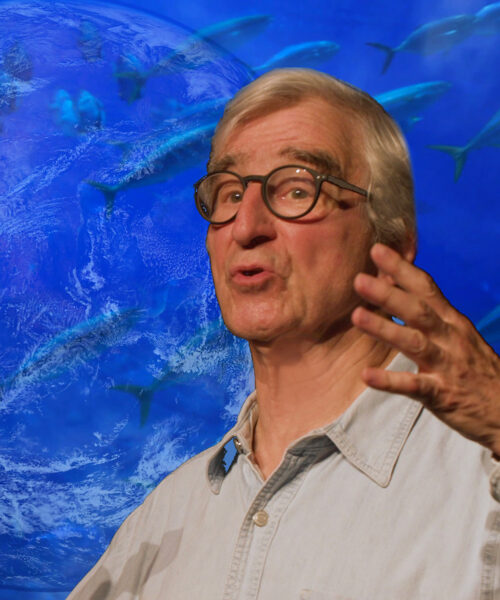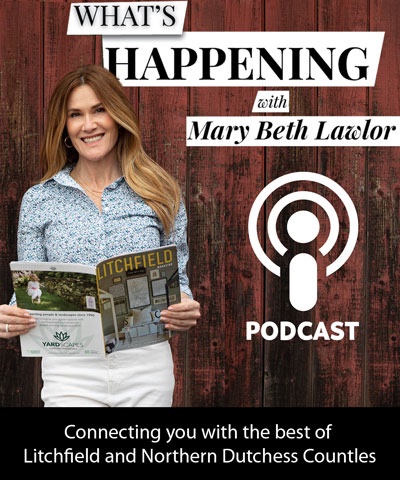June 18, 2024
Through Oceana, Sam Waterston Makes Waves
By Elizabeth Maker
As District Attorney Jack McCoy in “Law & Order,” the actor Sam Waterston is aggressively persuasive in proving his cases. As Sol Bergstein in “Grace and Frankie,” he’s the gentle, comforting gay husband of actor Martin Sheen, sometimes giddy, sometimes nearing tears when discussing an important issue.
Both personas were displayed on stage at the Housatonic Valley Regional High School in Falls Village last summer, only this time Waterston wasn’t acting. This was his real-life role as board chairman of Oceana, the largest global organization working to restore and protect the world’s oceans.
“It’s really the most important thing that I or any of us can do to change the course of climate history and preserve life on Earth,” Waterston says, urging everyone to join the nonprofit Oceana that was started in 1991 in large part by his close friend Ted Danson, the actor from “Cheers.” Danson, who graduated from Kent School in 1966, was “called to help the oceans,” Waterston says, when he was at a beach and his children emerged from the water with their feet covered in tar from the offshore oil wells. “That’s what led him to start Oceana, which he sees as his greatest achievement.”
Waterston has lived with his wife, Lynn, in Litchfield County since 1978, and they own a 250-acre Galloway cattle and Icelandic sheep farm in West Cornwall called Birdseye & Tanner Brooks Farm. While preserving land and raising organic livestock is important, nothing is more crucial for human survival than saving our oceans, Waterston stresses.
At his presentation, which was sponsored by the nonprofit Salisbury Forum, Waterston said his concern for oceans began when he learned that codfish were becoming extinct off the shores of Massachusetts, his native state. “The collapse of the cod fishery was the beginning of my own awakening,” he says, explaining that overfishing and oil drilling contributed to their decline. He spoke of New York’s Hudson River, which “held more oysters than all of the rest of the world put together,” until it was used as a dumping ground for garbage, sewage, and subway cars. He shared videos of the devastation humans have caused through careless disrespect of our greatest natural resource. “Each year, 33 billion pounds of plastic wash into the ocean. Sea turtles, birds, fish, and other marine life confuse it for food, or are entangled by it, and die.”
But Waterston went on to share the group’s success stories. With 275 policy victories around the world, including regulating commercial boats to stop overfishing, Oceana has protected 4 million square miles of ocean.
Many countries and American states have enacted bold plastic reduction policies, he says, reminding listeners to curb their use of single-use plastics. Even the Atlantic codfish is making a comeback, thanks to Oceana-influencing laws. “For the first time in 20 years, we have seen a successful year of cod, and they seem to be growing at a very good rate,” says Kevin Stokesbury, dean of marine science & technology at the University of Massachusetts Dartmouth. “Thanks, in a big way, to Oceana.”
Waterston asks that climate activists switch their focus to the oceans and become a “Wave Maker” at Oceana.org. “The oceans deserve our attention. They are 70 percent of the earth’s surface. They produce 50 percent of the earth’s oxygen. When well managed, they can produce enough wild-caught fish to feed a billion people a healthy protein meal every day of the week for the rest of time! You can tell I’m super-psyched about this! Oceana is a moving train, please come aboard.” —oceana.org






















